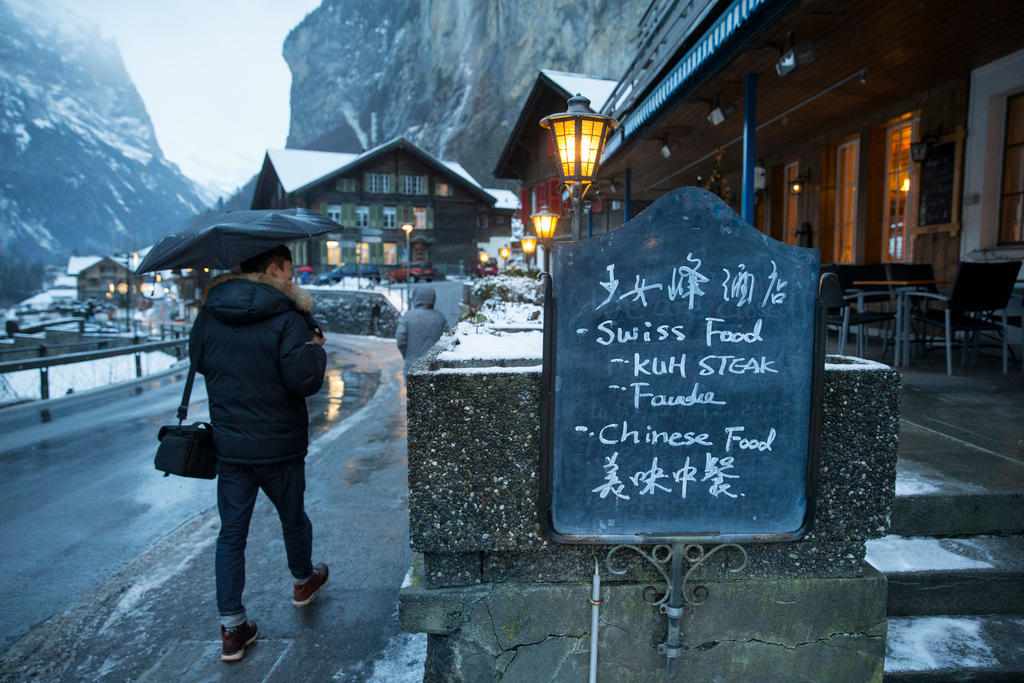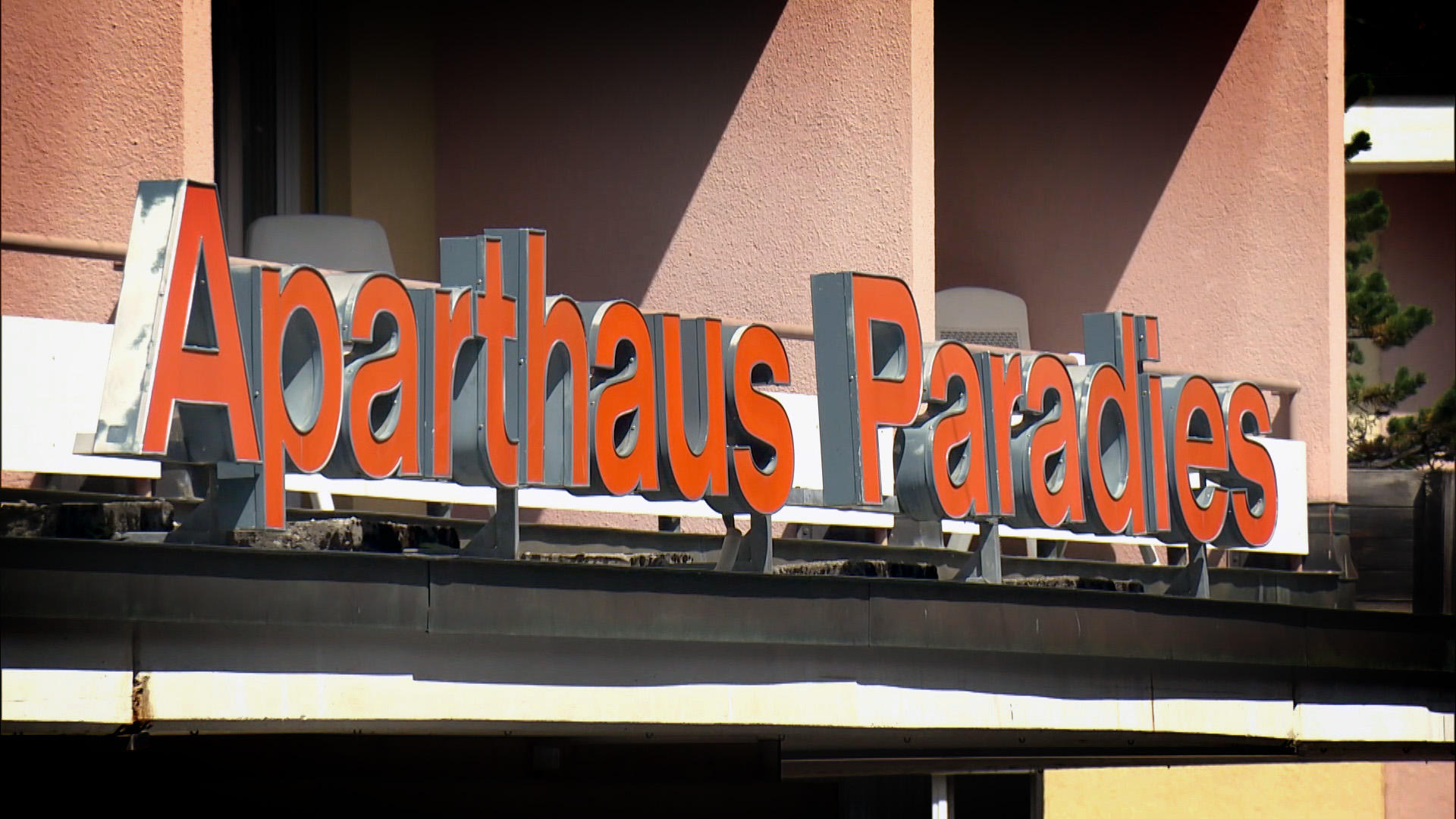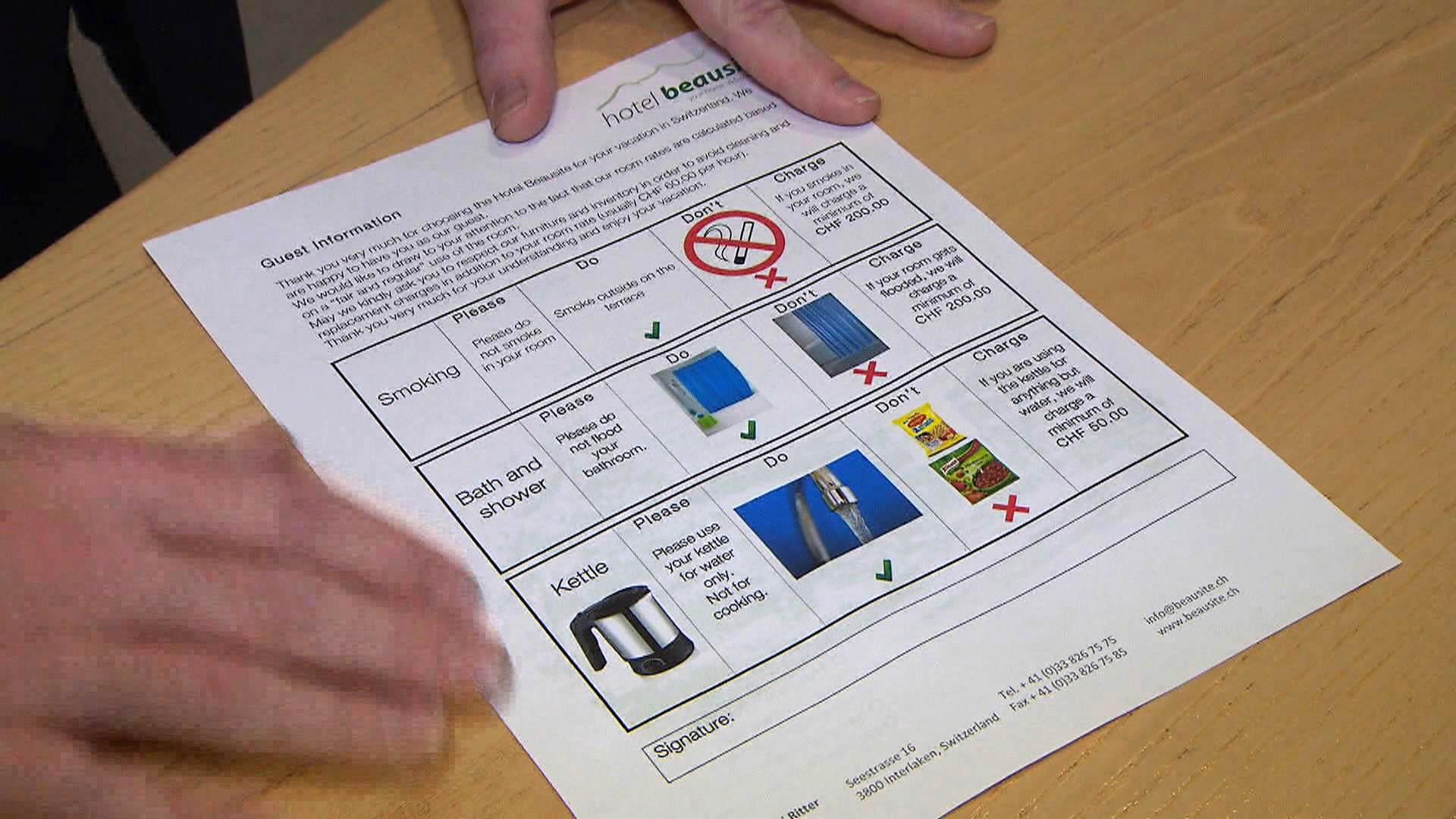
Swiss tourist industry challenged by cultural differences

The recent incident at an Arosa hotel, which had put up a sign instructing Jewish guests to shower before using the swimming pool, has raised the question of how well Swiss hotel and tourism staff are geared up to cater for visitors from other cultures.
“We have ongoing communication with all our hotels – how to correctly welcome tourist groups. But based on this recent incident, we must intensify efforts and point out to hotels what is not possible or not tolerated,” Pascal Jenny, director of Arosa tourism office, told the Blick newspaper on Wednesday.
The Swiss mountain resort has been welcoming Jewish visitors for many years. But the recent posting of a sign at the Aparthaus Paradies hotel in canton Graubünden caught many people by surprise, sparking outrage from Jewish organisations and the Israeli authorities claiming it was anti-Semitic, and damage limitation by the Swiss authorities.

More
Arosa hotel tries to limit ‘anti-Semitism’ damage
The sign read: “To our Jewish guests, women, men and children, please take a shower before you go swimming and although [sic] after swimming. If you break the rules, I’m forced to cloes [sic] the pool for you.” The hotel management quickly removed the sign after complaints.
Jenny said he had been ‘alarmed’ when a guest contacted him about the sign.
“Arosa is home to numerous Jewish tourists every year,” he told Blick. They represented 4,500 of the 450,000 annual overnight stays in 2016. “The Hotel Metropole [in Arosa] exclusively welcomes Jewish guests. As a result, we are specially sensitised to offering the best possible welcome to Jewish communities. We’ve never had a complaint. That is why we are so surprised to be in the spotlight over this regrettable isolated incident.”
Nevertheless, following the storm his office plans to create a ‘dos and don’ts’ checklist to help staff in hotels and other tourism-related jobs in their day-to-day work welcoming international visitors, notably from Israel, Britain, Asia and Germany.
Diversification
In recent years, the Swiss tourist industry, struggling with a strong franc and fewer European visitors, has successfully diversified to attract growing numbers of visitors from other regions, such as China, India, the Gulf states, and southeast Asia (see graph below).
But these new guests can pose challenges for hotels. Language problems and different habits can lead to misunderstandings and communication problems, leaving both the hotel staff and visitors feeling frustrated and unhappy.

More
Arab and Chinese guests pose challenges for Alpine hotels
To handle visitors with different cultural expectations, in 2015 Switzerland TourismExternal link and the Swiss Hotel Association created four booklets on guests from the Gulf, China, India and RussiaExternal link, which have been sent to 3,000 association members. These contain important information for tourism staff about the countries and their cultural and religious customs and traditions, as well as business ethics and tips on how to treat guests. The booklets have been updated annually.
The Hotel Association also organises special workshops for hotels and caterers. Hoteliers have received lessons and training in how to cater for Muslim guests during the holy month of Ramadan, for example.
“Intercultural topics are also taught on hotel apprenticeship courses and are part of hotel schools’ training programmes,” added Karin Sieber, spokesperson for the Swiss Hotel Association.
Switzerland Tourism spokesman Markus Berger felt hotel staff were sufficiently trained to cater for the cultural needs of international visitors.
“I would say that people are quite aware,” he told swissinfo.ch. “People have improved a lot. But we had to. There have been so many more international guests coming to Switzerland in recent years. But they keep coming back to the same hotels and the feedback we get is that they feel at ease. We hardly ever hear of incidents like this Arosa one, which is an exception. There is very little conflict or difficult situations.”
He said Switzerland Tourism was not planning any specific action following the Arosa incident.
“But it’s still very helpful that we are having this discussion, as it raises awareness about the need to be sensitive and considerate towards guests. Those people who have questioned whether we really need these brochures are reminded that they are definitely necessary,” he added.

In compliance with the JTI standards
More: SWI swissinfo.ch certified by the Journalism Trust Initiative



























You can find an overview of ongoing debates with our journalists here . Please join us!
If you want to start a conversation about a topic raised in this article or want to report factual errors, email us at english@swissinfo.ch.